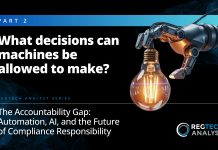The integration of artificial intelligence (AI) within the Salesforce ecosystem is revolutionizing business-customer interactions and operations management. As tools like Salesforce Einstein provide predictive capabilities and deep insights into customer behaviour, ethical considerations become crucial.
IntellectAI, which offers tools for personalised wealth advisory and risk management, recently delved into AI’s evolution in Salesforce, the ethical principles essential for its deployment, and the pivotal role architects play in ensuring these technologies are used responsibly, inclusively, and transparently.
Salesforce’s foray into AI began in 2014 with the formation of the SFDC AI Research team, demonstrating a dedication to pioneering intelligent solutions. Key acquisitions, including RelateIQ and MetaMind, set the stage for the 2016 launch of Salesforce Einstein, which integrated AI across the Salesforce platform, transforming customer engagement with predictive insights.
By 2018, the Einstein Prediction Builder democratized AI, enabling Salesforce admins to create custom predictions. In 2019, Conversation Insights leveraged natural language processing to derive insights from sales calls, enhancing learning from every interaction. Today, Einstein makes over 1 trillion predictions weekly, cementing its role as Salesforce’s central nervous system. Recent innovations include CodeGen and the ProGen paper, showcasing advancements in generative models and integrating Einstein GPT, ushering in generative AI within the platform.
This rapid evolution highlights the necessity of ethical considerations in AI deployment, IntellectAI said. Questions arise about whether AI should be used for all applications.
Responsible AI use involves deploying AI purposefully and conscientiously, ensuring beneficial outcomes without harm. This principle, “do no harm,” focuses on preventing negative impacts like biases in decision-making, data privacy breaches, and adverse effects on mental health or social well-being. Evaluating the system’s impact on all stakeholders is crucial, ensuring benefits or no disadvantages for customers, employees, partners, and the broader community.
Accountability in AI means tracing decisions and actions back to human operators, ensuring transparency and understanding of AI-driven decisions, such as loan application evaluations. This requires audit trails and human oversight. Feedback loops are vital for continuous improvement, ensuring AI systems evolve ethically.
Transparency in AI involves making decision-making processes understandable and visible to users. Architects play a key role in designing systems where AI operations—from data flow and model logic to learning mechanisms—are documented and explainable. This transparency builds trust, allowing users to understand AI’s direct impacts on them.
Inclusivity ensures AI systems serve diverse users without prejudice, involving diverse datasets for training AI systems, mitigating biases, and ensuring language and cultural inclusivity. Architects must design systems that respect and cater to global diversity, promoting equity and fairness.
Architects embed ethical considerations throughout the AI lifecycle, from design to deployment. This includes proactive bias mitigation, advanced privacy features, and creating systems resilient to exploitation. Architects lead by example, developing guidelines and fostering a culture of ethical AI use that could set industry standards.
Deploying ethical AI presents challenges and opportunities. Architects are uniquely positioned to influence AI development, ensuring adherence to ethical principles. This responsibility includes navigating evolving data laws, preventing misuse, and ensuring AI systems are innovative and equitable.
Read the full story here.
Keep up with all the latest FinTech news here
Copyright © 2024 FinTech Global











